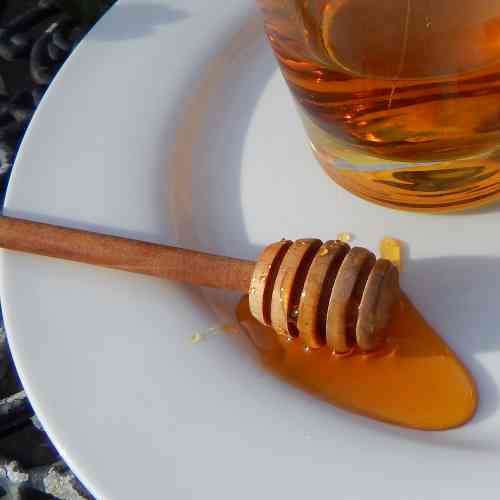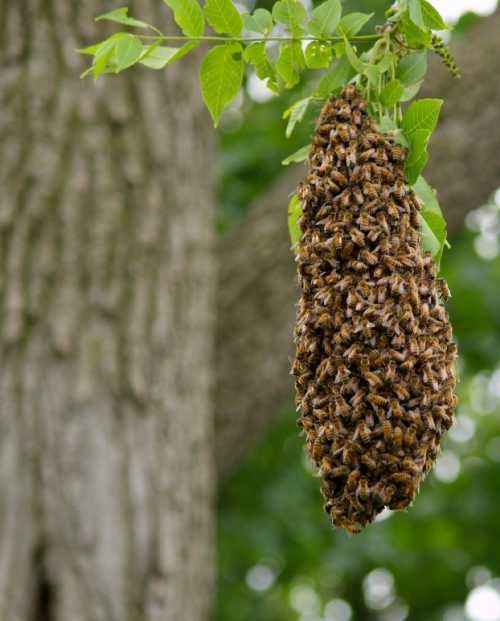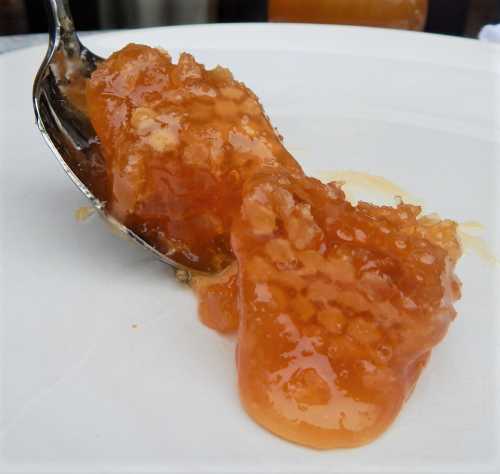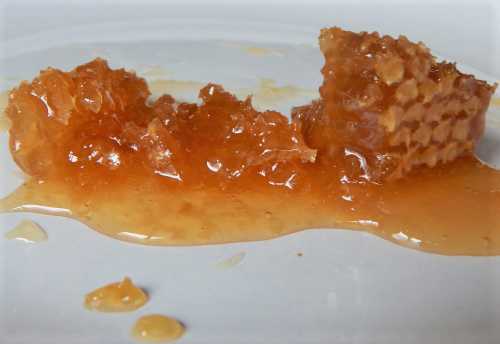Bees In Judaism
There has been an association between humans
and bees for many thousands of years. All the world’s major religions attest to this, with many references to bees and honey (and,
indeed, to the ‘honey industry’) in religious writings and ‘sacred’
books. This article looks at bees and honey in Judaism.
Bees, honey, and mead all have a part in Jewish scriptures, teaching, and traditions.
It is said that bees are honored and viewed positively within Judaism, not just because of the honey they produce, but also because of their co-operative, organizational social structure, which is seen as a good example for human society.
There are many mentions of bees and honey in the written teachings of Judaism and their interpretations, ranging from the use of honey as a thanksgiving offering to likening a swarm of wild bees to a hostile army.
Bees And Jewish Traditions And Customs
The first thing to mention is that honey is considered a kosher food in Judaism. This is because, although it is created by an ‘unclean’ animal, the honey does not derive from the bee’s body but is made by the bees.

Rosh Hashanah
There is an old Rosh Hashanah (Jewish New Year)
tradition that involves honey. At Rosh Hashanah the sweet eggy bread
(challah) that is served on the Sabbath and on holidays is first dipped in
honey, and a prayer for a ‘good and sweet’ year is said after consumption of a
piece.
A piece of sweet apple is then dipped in honey with the same
prayer being repeated after eating it.
Yom Kippur
On the eve of Yom Kippur, the rabbi will distribute
honey cake to the congregation. There is a further tradition that the
recipient ‘begs’ for a piece – symbolizing the hope that it will be the last
time he or she will have to beg for anything in the following year, and instead, will be self-sufficient and independent.
Hoshana Rabba
Many people will recite Psalms all night on the day
known as Hoshana Rabba (the final day of Rosh Hashana) – there is again a custom of
consuming apple dipped in honey at the end of the recital.
Mead Drinking
Although mead plays no part in Jewish ritual, it
does appear in Jewish folklore.
For example, there is a tradition (especially in Ashkenaz Judaism in Eastern Europe) of drinking mead to celebrate religious holidays. There is also a tradition of drinking mead during Passover.
Mentions of bees in the Torah / Tanakh

- The land of Israel is described as a ‘land flowing
with milk and honey’ (Exodus / Shemot 3:8; Deuteronomy / Devarim 31:20).
- In Exodus, the ‘manna’ that the Jewish
people ate on their journey from Egypt to Israel was described as tasting ‘like
wafers made with honey’ (Exodus /Shemot 16:31).
- ‘The Lord shall whistle for … bees from the land of
Assyria. … All who remain in the land will eat curds and honey.’ – Isaiah /
Yeshayahu 7:18 / 22.
- 2 Chronicles / Divrei
ha-Yamim 31:5 tells of the Israelites giving honey as part
of thanksgiving worship offering.
- Honey was used as a diplomatic gift - Genesis /
Bereshit 43:11.
- Honey was also used as an item of export or barter
exchange – Ezekiel / Yĕḥezqiēl 27:17.
- There are many references to abundance of honey – Deuteronomy / Devarim 32:13; Judges / Shoftim 14:8; 1 Samuel / Shmuel 14:25; Psalm / Tehellim 81:16 / 17.
- A swarm of bees is compared to a hostile army –
Deuteronomy / Devarim 1:44.
Did You Know?
Toxic Honey Was Used In Ancient Warfare!

